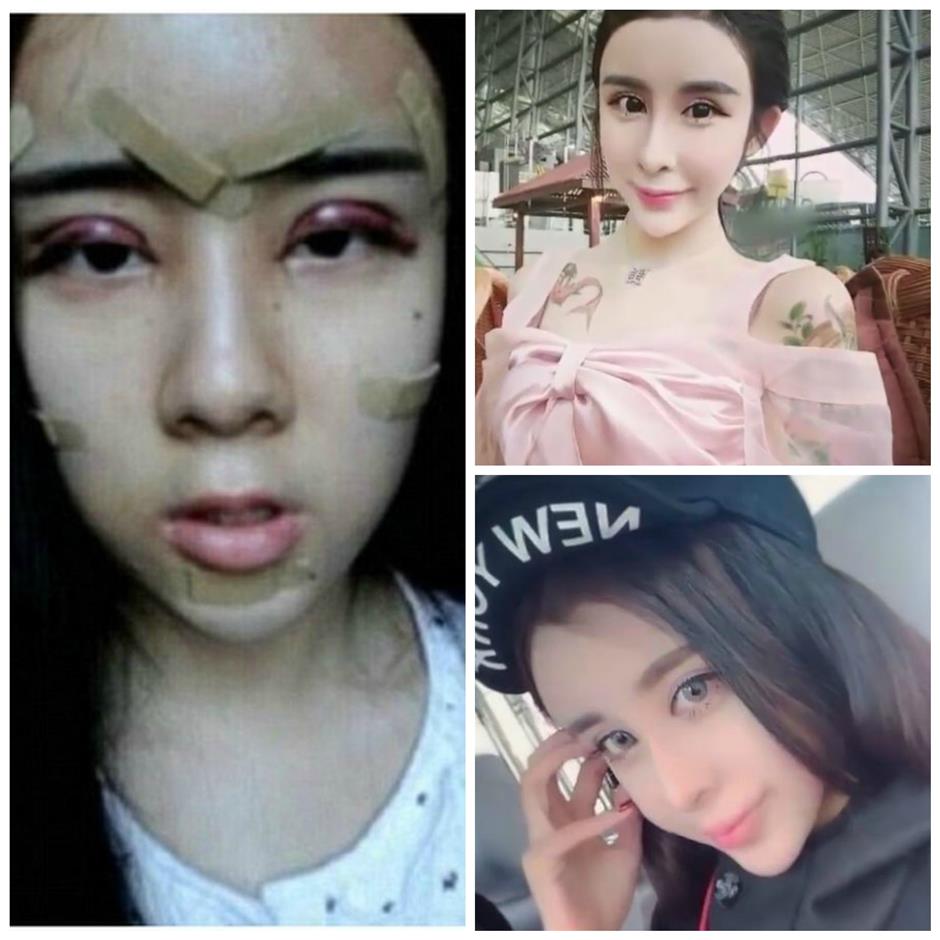Plastic surgery or cosmetic surgery is a newer trendy option for teenagers. You may look into a mirror and may feel that if it is not because of your nose is too wide, or your face is too round, you would look better. Or perhaps you are too self-conscious because you are flat chested. Perhaps a bad case of acne has left scars or pits on your face because of your physical characteristics, you might be among thousands of teenagers around the world who are considering the option of having plastic surgery. If you’re self-conscious about a physical characteristic, you may be among the thousands of teens who consider plastic surgery each year.
What Is Plastic Surgery?
Just because the name includes the word “plastic” doesn’t mean patients who have this surgery end up with a face full of fake stuff. The name isn’t taken from the synthetic substance but from the Greek word plastikos, which means to form or mold (and which gives the material plastic its name as well).
Plastic surgery is a special type of surgery that can change a person’s appearance and ability to function.
- Reconstructive procedures correct defects on the face or body. These include physical birth defects like cleft lips and palates and ear deformities, traumatic injuries like those from dog bites or burns, or the aftermath of disease treatments like rebuilding a woman’s breast after surgery for breast cancer.
- Cosmetic (also called aesthetic) procedures alter a part of the body that the person is not satisfied with. Common cosmetic procedures include making the breasts larger (augmentation mammoplasty) or smaller (reduction mammoplasty), reshaping the nose (rhinoplasty), and removing pockets of fat from specific spots on the body (liposuction). Some cosmetic procedures aren’t even surgical in the way that most people think of surgery — that is, cutting and stitching. For example, the use of special lasers to remove unwanted hair and sanding skin to improve severe scarring are two such treatments.

Why Do Teens Seek Plastic Surgery?
Teens seek plastic surgery for many reasons.
- One reason many cite is that young people can be cruel, whether intentionally or not. For example, someone may blurt out to a friend, “Gee, did you see that kid’s nose?” Without thinking of the pain it may cause. A constant barrage of cruel remarks often drives teens to take surgical action.
- Celebrities, reality shows and social medias, puts pressure on everyone which can contribute to Body Dismorphic Disorder, a mental disorder which causes normal-looking teens to obsess over slight imperfections and blow minor physical flaws out of proportion and into ego-shattering shortcomings.
- Most teens seek plastic surgery to improve their appearance or to increase self-esteem. Teens often report that their self-image and self-confidence improves when their perceived physical shortcomings are corrected. Teens often want to fit in with others, rather than stand out, where appearance is concerned. So it is important, when you consider plastic surgery, you are doing it for yourself. Never make decisions based on peer.
Coaching, supportive friends and family, and psychological treatment are better alternatives to raising low self-esteem in teens.
Before you embark on any decision of plastic surgery; you will need emotional maturity and family support to get through what many consider a “minor” corrective procedure. What you must understand, any surgery involves risk. Teens must have a realistic grasp of the risks and the limitations of plastic surgery.
What Are Common Plastic Surgery Procedures for Teens?
Some plastic surgery procedures, like breast enlargement, liposuction, and cheek implants are generally considered inappropriate for teens, except in unusual cases. But other procedures may be beneficial.
Some of the common plastic surgery procedures for teens are:
- Rhinoplasty(nose reshaping or a nose job) is the most common cosmetic procedure requested by teens. The nose must have reached its adult size before surgery can be considered. The nose has usually finished growing by age 15 or 16 in girls, and age 16 or 17 in boys.
- Otoplasty(ear pinback) may be done after the age of about 5 or 6 years.
- Chin augmentationor reshaping the chin may be done during the teenage years.
- Breast asymmetry correctionmay be done when one breast is different from the other in size or shape.
- Breast reductioncan benefit teen girls as young as age 15 who are embarrassed by very large breasts, or who are having shoulder pain, back pain, or breathing difficulty because of excessively large breasts.
- Gynecomastiais a procedure used to treat excessive breast development in male teens. Usually, this condition disappears on its own. But if the condition is severe, this procedure may be done.
- Laser treatmentor dermabrasion (a sanding technique) may be used to smooth skin scarring caused by acne. Collagen or other filler injections are also sometimes used to repair skin defects.
Things for Teens to Consider Before Plastic Surgery
As with any surgery, parental consent is required for all plastic surgery procedures performed on teens younger than 18 years old. The American Society of Plastic Surgeon advises parents to evaluate the teenager’s physical and emotional maturity and believes that individual cases merit careful evaluation under the guidance of a certified plastic surgeon.
The American Society of Plastic Surgeon offers these guidelines for teens considering plastic surgery:
- The teen must initiate the request (rather than say, a parent). Ask yourself if you’re considering plastic surgery because you want it for yourself or whether it’s to please someone else.
- The teen has realistic goals. You must appreciate both the benefits and limitations of plastic surgery, avoiding unrealistic expectations about life changes that will occur as a result of the procedure. A person’s body continues to change through the teen years. Body parts that might appear too large or too small now can become more proportionate over time. Sometimes, for example, what seems like a big nose looks more the right size as the rest of the person’s face catches up during growth.
- Getting in good shape through appropriate weight control and exercise can do great things for a person’s looks without surgery. It’s never a good idea to choose plastic surgery as a first option for something like weight loss that can be corrected in a nonsurgical manner. Gastric bypass or liposuction may seem like quick and easy fixes compared with sticking to a diet. Both of these procedures, however, carry far greater risks than dieting, and doctors should reserve them for extreme cases when all other options have failed.
- Some people’s emotions have a really big effect on how they think they look. People who are depressed, extremely self-critical, or have a distorted view of what they really look like sometimes think that changing their looks will solve their problems. In these cases, it won’t. Working out the emotional problem with the help of a trained therapist is a better bet. In fact, many doctors won’t perform plastic surgery on teens who are depressed or have other mental health problems until these problems are treated first.
- The plastic surgeon should be experienced and board-certified in a specialty recognized by the American Board of Medical Specialties, including the American Board of Plastic Surgery.
- The surgery should be done in an accredited surgical facility with the ability to handle rare complications.
- The surgery must be done under a policy of full, informed consent. That means the details of the procedure are understood and agreed to by the patient and the patient’s parent or guardian.
- In addition, certain milestones in growth and physical maturity must be achieved before deciding for plastic surgery.

Is Plastic Surgery Right For You?
Here are some tips to help you decide:
- Don’t expect plastic surgery to solve all your problems. Plastic surgery will not make you a different person.
- Plastic surgery won’t make people like you. It won’t make you popular in school.
- Although your looks can influence some of your success in life, they’ll only get you so far. Strive to learn and improve yourself from within.
- There are downsides to everything. Be aware of the complications and risks of any surgery.
- If people judge you by your looks or clothes, they probably aren’t true friends.
- Knowledge is power. After researching all of your options, you may realize you don’t need plastic surgery. Perhaps a few pointers on the clothes you wear or some tips on how to be more outgoing may be all you need to feel confident about yourself.
- Identify what is your actual problem. Is it how you look or are you having pressure from your peers to fit in. Discuss with your parents about this.

The bottom line is, and agreed by most plastic surgeons, that unless the physical flaw is health related or seriously deforming, teens should wait until they have finished growing and developed their self-esteem through personal life experience in order to make a rational, informed decision about cosmetic surgery.
Just remember good personality or intelligence is more important than physical beauty.

PLEASE LOVE YOURSELF, THE WAY YOU ARE.
References:
- American Society of Plastic Surgeons web site: “Plastic Surgery for Teenagers.”
- Enhancement Media.com web site: “Plastic Surgery for Teens.”
- MedicineNet web site: “Is Plastic Surgery a Teen Thing?”
- The Nemours Foundation web site .TeensHealth.org. Access 25th April 2017.
- American Society of Plastic Surgeons. Briefing Paper: Plastic Surgery for Teenagers. Access 25 April 2017.
- Kuldeep Singh. Cosmetic Surgery in Teenagers: To Do or Not to Do. J Cutan Aesthet Surg. 2015 Jan-Mar; 8(1): 57–59. Access 25 April 2017.
| Last Reviewed | : | 28 August 2020 |
| Writer | : | Datin Dr. Zil Falillah Bt. Hj. Mohd Said |
| Accreditor | : | Dr. Salmah Bt. Nordin |
| Reviewer | : | Dr. Nazhatussima bt. Suhaili |







